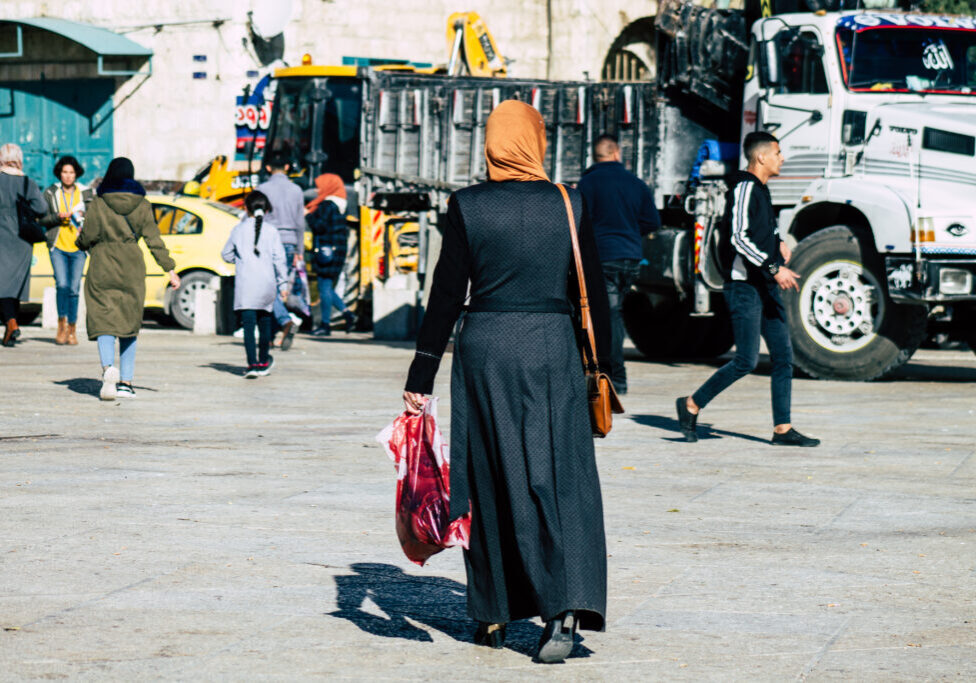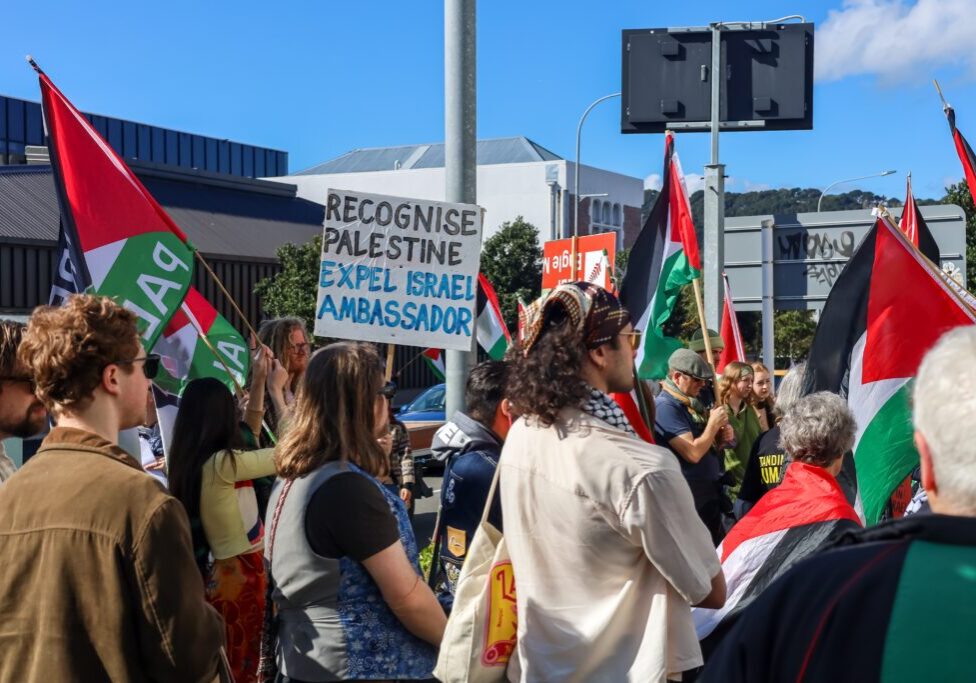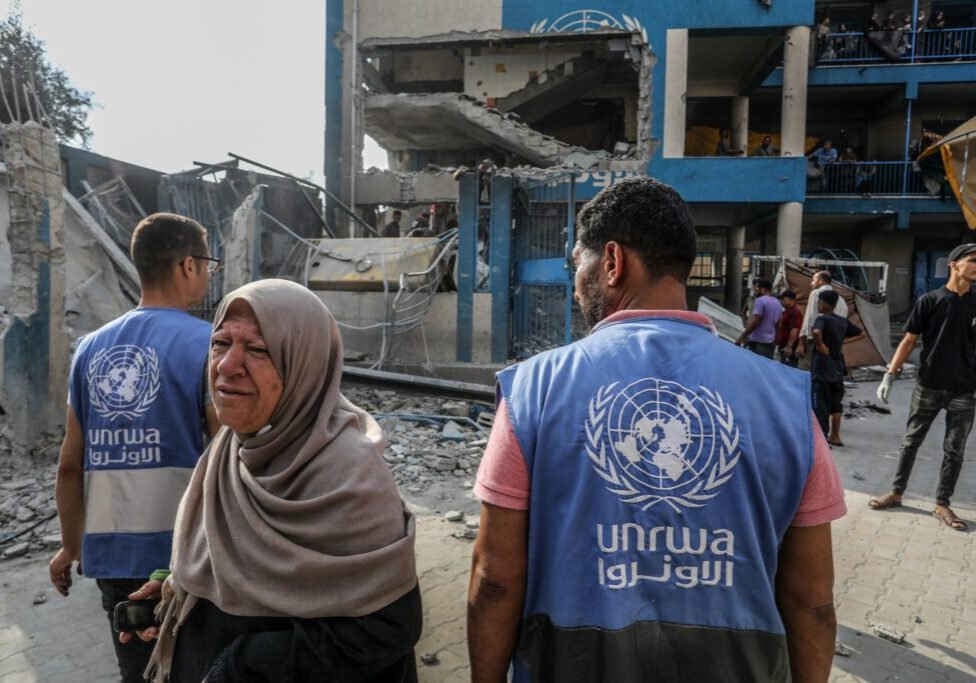Australia/Israel Review
The Investigation and the Evidence
Nov 23, 2021 | Matthew Levitt
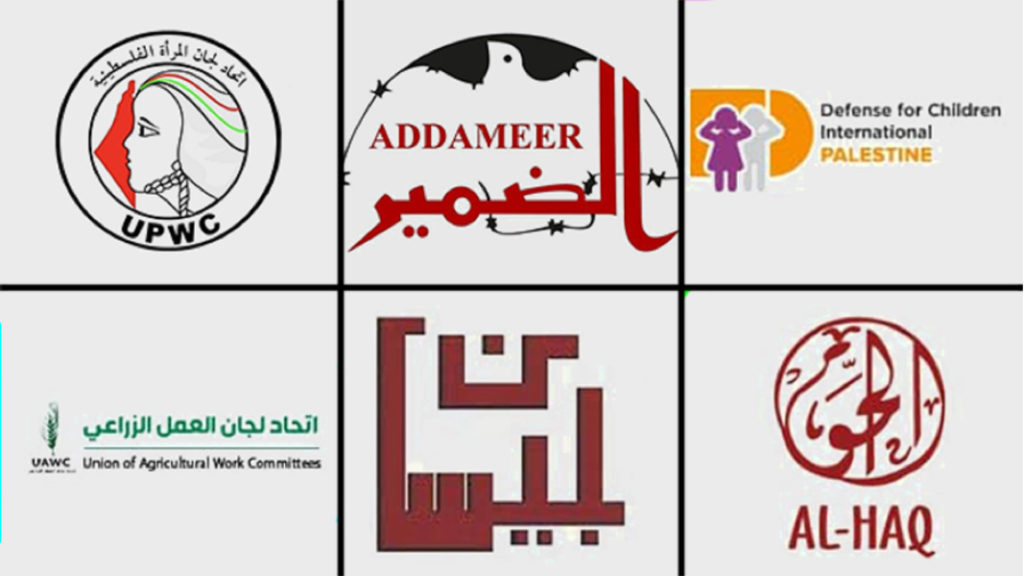
On Oct. 19, 2021, Israel designated six Palestinian civil society NGOs on charges of supporting the Popular Front for the Liberation of Palestine (PFLP), a US and EU-designated terrorist group. The move sparked severe condemnation by international civil society and human rights groups, many of which have long partnered with these NGOs. Criticisms of the designations, however, focus on the groups’ civil society activities, not the underlying charges of fraud and organised financial support for a designated terrorist group. It is indeed a very sensitive matter when a government designates NGOs that actively criticise its activities through civil society fieldwork, which is why the evidence underscoring the designations warrants careful scrutiny.
To that end, statements by the United States, Australia, the European Union, and others requesting further information about the basis for these designations is welcome. According to Israeli authorities, the country’s subject matter experts briefed their US counterparts on the underlying investigations within days of the designations, and handed over several binders of evidence as well.
Because the fraud primarily involved European authorities, Israelis had already briefed their counterparts in six different European countries.
Background
The Israeli designations targeted six NGOs for serving as PFLP fronts: the Addameer Prisoner Support and Human Rights Association, Union of Palestinian Women’s Committees (UPWC), Bisan Centre for Research and Development, al-Haq Organisation, Union of Agriculture Work Committees (UAWC), and Defense for Children International–Palestine (DCI-P).
According to Israeli authorities, the designations were the result of a joint terrorism financing investigation run by the Israel Security Agency (ISA, aka Shin Bet, Israel’s domestic intelligence service) and Israel’s National Bureau for Counter Terror Financing.
Origins of the inquiry can be traced earlier to the 2019 murder of 17-year-old Rina Shnerb by PFLP operatives who worked at one of these NGOs.
Several prominent international organisations were quick to condemn Israel’s action, led by the UN High Commissioner for Human Hights, Michelle Bachelet, who wrote that the designation amounted to “an attack on human rights defenders, on freedoms of association, opinion and expression and on the right to public participation.”
The designated organisations, she continued, “are some of the most reputable human rights and humanitarian groups in the occupied Palestinian territory and for decades have worked closely with the UN.”
Despite such statements, none of the NGOs’ defenders has addressed Israel’s accusations or the underlying evidence head-on. Further still, statements such as Bachelet’s fail to address the possibility that while these international organisations partner with groups that publicly defend the human rights of some people, they support acts of terrorism and murder targeting others. Indeed, the terrorist designations of these six NGOs did not come out of the blue, but rather are the result of a decade’s worth of events. More recently, public Israeli actions – from the release of official reports to arrests and prosecutions – point to a concerted effort to collect the kind of information necessary to underpin these designations.
Phase 1: From the Gilad Shalit Swap to the Murder of Rina Shnerb
As part of the 2011 prisoner swap that secured the release of Israeli soldier Gilad Shalit from Hamas custody, Israel freed some 1,027 Palestinian prisoners, including some 50 PFLP operatives. Several of these operatives soon resumed activities on behalf of the PFLP, according to Israeli officials who acknowledge not being sufficiently aware of this trend at the time, when the country’s security agencies were much more focused on Hamas and Palestinian Islamic Jihad.
NGOs targeted in the recent Israeli designations hired some of these operatives, such as Salah Hamouri, who was employed at Addameer despite the public nature of his affiliation with the PFLP and his prior conviction for plotting to assassinate former Israeli Sephardic Chief Rabbi Ovadia Yosef. Upon Hamouri’s prison release in 2011, the PFLP website pictured him waving the organisation’s flag and quoted him as saying, “There is no option for the Palestinian people except resistance, because it is the only way for us to achieve our people’s rights, our freedom, and our self-determination.”
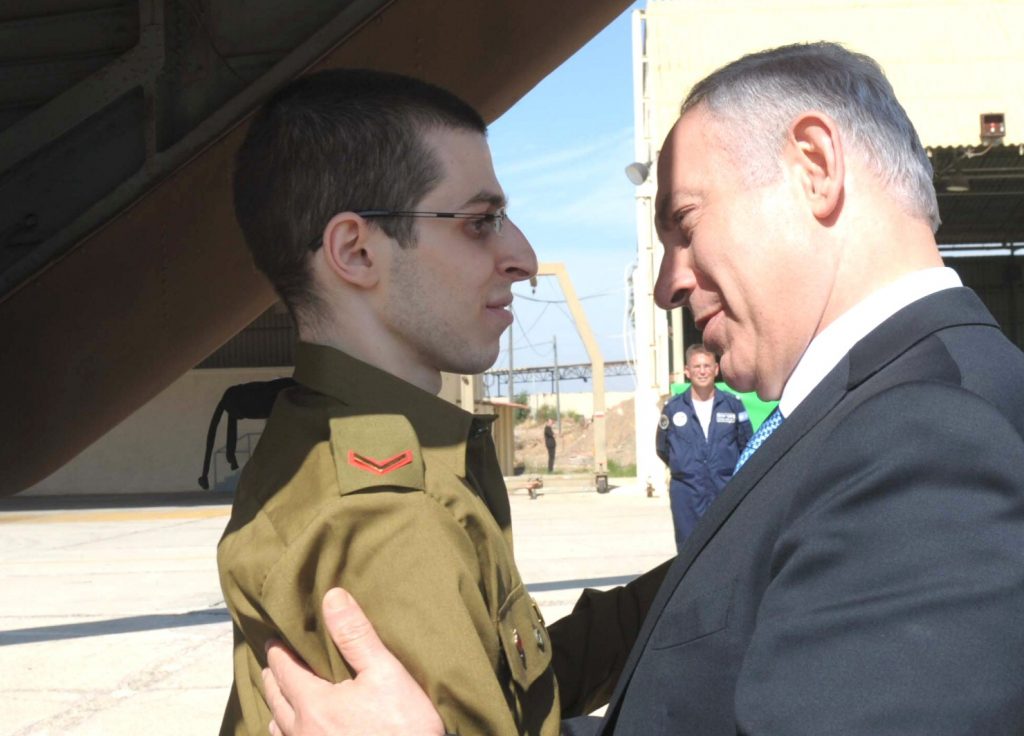
Israeli authorities began to focus on PFLP activities after some 50 PFLP operatives were released as part of the 2011 prisoner swap deal for kidnapped Israeli soldier Gilad Shalit (pictured here with then PM Netanyahu)
Following the Shalit deal, the tempo of PFLP operational activities increased, including a plot to kidnap an Israeli soldier near Hizma, northeast of Jerusalem, in May 2012, a Kornet anti-tank missile launched across the Gaza border in November 2012, and another kidnapping plot foiled in December 2012.
Israeli security authorities soon underscored for the public “the high motivation of terrorist organizations to carry out a kidnapping, with a special emphasis on the PFLP, whose members have been involved in a number of plots in the past year.” Over the next few years, among other plots, PFLP operatives carried out a shooting attack targeting tourists near the Wadi Qelt canyon in the West Bank; murdered five Jews, including three American citizens, praying at a Jerusalem synagogue; planned an attack in east Jerusalem; killed an Israeli driver in southern Jerusalem; and attempted to assassinate then Jerusalem Mayor Nir Barkat and other Israeli political figures.
The PFLP even began cooperating with Hezbollah, sending operatives to Lebanon for training so that they could conduct still more sophisticated attacks in Israel. In July 2018, a Belgian-Palestinian dual national trained by Hezbollah in Lebanon was arrested on suspicion of terrorist activity as he attempted to cross from Jordan into Israel.
From time to time, Israeli authorities arrested employees of the now designated NGOs – not for their civil society or human rights work, but for acting on behalf of the PFLP. Salah Hamouri, the earlier-noted Addameer field researcher, was arrested in 2017. Ayman Nasser, Addameer’s legal unit coordinator, was arrested in 2018. Abdullatif Ghaith, chair of Addameer’s board of directors and a co-founder of the organisation, was placed on a travel ban in 2019. And Khalida Jarrar, deputy director of Addameer’s board of directors and the organisation’s former director, was arrested in 2019 and ultimately pleaded guilty to being a member of a terrorist group (PFLP).
In February 2019, Israel’s Ministry of Strategic Affairs issued an English-language report, Terrorists in Suits, outlining Hamas and PFLP use of human rights organisations as fronts. According to the report,
Hamas and PFLP operatives have infiltrated and adopted seemingly benign NGOs in the Palestinian Authority, Europe, North America and South Africa, for the purpose of advancing their ideological goal: the elimination of the State of Israel as the nation-state of the Jewish people. Moreover, it appears that terrorist organizations view NGOs in the West as a convenient means for raising funds which they could not otherwise obtain.
Addameer, al-Haq, and DCI-P, three of the recently designated organisations, are included in the report, along with several other NGOs accused of having ties to the PFLP.
Then, on Aug. 23, 2019, PFLP operatives planned and detonated a bomb at a popular West Bank hiking spot, killing 17-year-old Rina Shnerb and wounding her father and brother. Two of the PFLP terrorists involved in this attack – including Samer Arbid, charged with recruiting cell members and personally detonating the explosive – were employed by the Union of Agricultural Work Committees, one of the recently designated NGOs.
The murder of a teenage girl drove Israeli authorities to conduct a full-blown investigation into PFLP activities in the West Bank, resulting in the arrest of some 50 PFLP members over four months and foiling additional plots. The crackdown also netted a significant arsenal of weapons and related apparatus, including assault rifles and other guns, silencers, scopes, ammunition, radios, and large quantities of bomb-making equipment such as fertiliser, metal ball bearings, and fuses.
Among the arrested PFLP operatives was Walid Muhammad Hanatsheh, a finance and administration manager for the Union of Health Work Committees (UHWC), another PFLP-affiliated NGO.
These arrests were announced in December 2019 and within two months, in February 2020, Belgium rescinded an invitation to a DCI-P senior advisor to address the UN Security Council. Belgium held the rotating Security Council presidency that month, but withdrew the invitation after receiving information from Israel linking DCI-P to the PFLP.
The arrests also led to a political scandal in the Netherlands, and in July 2020 the Dutch Government suspended its aid to the UAWC based on evidence that the NGO used Dutch subsidies to continue paying salaries for the two men already on trial for Shnerb’s murder.
Phase 2: Investigating PFLP Funding Streams
Once the investigation into the Shnerb murder was completed, and the network of PFLP operatives plotting further attacks arrested, Israeli authorities initiated the second phase of their investigation focused on the PFLP’s financial support networks. Pulling at the threads of the two NGOs directly tied to PFLP operatives involved in Shnerb’s murder, the UAWC and UHWC, Israeli authorities began mapping out what they ultimately determined was a network of front organisations providing funds for the PFLP, day jobs and legitimacy for its operatives, and space for secure meetings.
Israeli authorities officially declared the UHWC an illegal association on Jan. 22, 2020, although it continued functioning. Then, in March 2021, Israeli authorities raided the UHWC headquarters in al-Bireh, searched the premises, and seized files and computers, while also detaining three office employees. In early May 2021, Israel arrested four people affiliated with the UHWC, including Juani Rashmawi (a European fundraiser), Tisir Abu Sharbak (a senior accountant), Saeed Abdat (a former accountant), and Amro Hamuda (a former purchasing department manager). The defendants were charged with activity in a proscribed organisation, conducting illicit money transfers, and fraud, and accused of defrauding European donors by manipulating records to cover funds “in the eight figures” diverted from the NGO to the PFLP. Together, investigators said, the four “duped European donors using financial records doctored to hide cash diversions” to the PFLP.
The investigation, however, did not end with the UHWC. Instead, it led Israeli officials to conclude that a network of seven NGOs – the UHWC and the six just designated – “act under PFLP leadership and in accordance with the organization’s directives, as a cover for promoting the PFLP’s activities and funding.”
As the inquiry progressed, UHWC director Shatha Odeh was arrested in July 2021 on multiple charges, including working for an unlawful association, use of fraudulent documents, and receiving funds through fraud. That same month, Israeli security forces raided the DCI-P headquarters office in al-Bireh, seizing computers and files as part of their investigation. According to an Israeli official, authorities also seized evidence from the offices of the UAWC. The raids, an Israeli official stated, were “part of the battle against terror financing, on the basis of established and up-to-date intelligence.”
By August 2021, the European Anti-Fraud Office (OLAF) had reportedly launched an investigation into EU support for NGOs tied to the PFLP. Israel has shared evidence with authorities in multiple European countries and now also the United States. Meanwhile, following the designations of these six NGOs, Israeli authorities arrested PFLP political bureau member Bashir al-Khairi in Ramallah. Khairi had reportedly served both on Addameer’s board and as president of the UAWC.
The Nature of the Evidence
According to Israeli officials, the information underpinning the designations of these six NGOs comes from a variety of sources, including classified intelligence, seized materials and other court evidence, and the statements made by arrested NGO employees to investigators. The intelligence is unlikely to be made public, which is typical for the evidentiary documents used to support designations in the United States and elsewhere. But much of the evidence has or will come out in court as those proceedings advance, and significant portions have been shared with American and European counterparts.
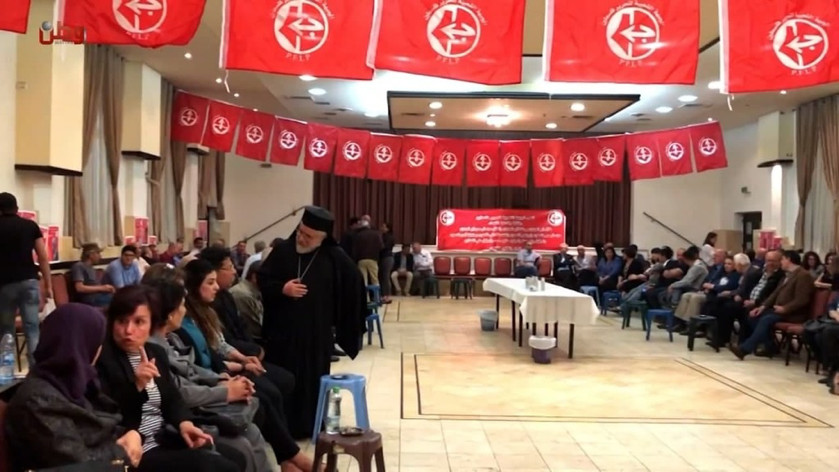
A 2019 video from the Palestinian Wattan Media Network of an official PFLP event that featured leading PFLP figures, and which included representatives of the now-banned NGOs, including Khaleeda Jarrar and Abdullatif Ghaith of Addameer, Shawan Jabarin of al-Haq, Gebril Muhamad of Bisan, and Ahmad Saadat of the UPWC (Screenshot)
The underlying connections between these NGOs and the PFLP are well documented. Senior officials at the NGOs are themselves tied to the PFLP, and the NGOs routinely hire known PFLP operatives, including those convicted of terrorist plots and of being PFLP operatives. But the roles these NGOs play as a networked PFLP financing mechanism were only discovered in the wake of Rina Shnerb’s murder.
For example, in a statement to Israeli police, one of the arrested UHWC employees explained that “the PFLP-affiliated institutions are inter-connected and serve as the organisation’s lifeline financially and organisationally, i.e., money laundering and financing PFLP activity.”
This comment was made with specific reference to Addameer, the Bisan Center, al-Haq, DCI-P, the UAWC, and the UPWC. In the arrangement, one NGO would learn how to conduct various types of fraud and money laundering, then pass this knowledge on to the others. For example, as Saeed Abdat at the UHWC mastered the means of defrauding European donors, Israeli officials say, he relayed that knowledge to senior officials at the UPWC and the Bisan Centre.
According to investigators, the funds raised by these NGOs were ultimately disbursed through a PFLP committee system dedicated for this purpose. In another statement, defendants described an “internal committee” made up of PFLP operatives working for these NGOs – specifically, Walid Hanatsheh, Itiraf Rimawi, Khitam Saafin, and Abdul Razeq Faraj – responsible for managing money transfers. This group oversees a separate “high-level external committee,” which in turn reports directly to the PFLP’s central committee. The central committee then determines how to distribute incoming funds among the PFLP’s military, political, and social service activities. One reason this is so significant: Hanatsheh, Rimawi, and Faraj were all directly involved in the decision to carry out the bombing that killed Rina Shnerb.
According to the Israeli indictment of Tisir Abu Sharbak, one of the four UHWC employees arrested in May 2021, the NGOs in question employed a variety of money laundering schemes to obfuscate their role as PFLP fronts. First, they forged documents and receipts to significantly inflate the cost of a given project as presented to donors. The difference from these inflated invoices would go to the PFLP. To facilitate this fraud, the NGOs negotiated deals with local businesses, which provided realistic-looking invoices the NGOs could use to pad their numbers. The NGOs would add 16% tax to these invoices, which they would pass on to the businesses for participating in the scheme. The NGOs also presented foreign donors forged invoices for purchases that were either never made at all or made for a fraction of the stated cost. In the words of one defendant, “There is real procurement and fictitious procurement in each project. Everyone knows what is real and what is fictitious with the aim of receiving the money from those who provide the funding.”
For example, according to Israeli authorities, evidence shows that in 2014-2016, the “UHWC forged receipts indicating that a Spanish-funded project to supply medicines in east Jerusalem would cost 2.5 million NIS [Israeli shekels].” But the actual project cost only 100,000 shekels, and the remaining funds were redirected to the PFLP. In another case, Israeli authorities say evidence documents how the UHWC told donors a project to vaccinate Palestinian children would cost 245,000 euros, when the actual cost was a mere 2,500 shekels (less than 700 euros) and most of the money was siphoned off for the PFLP.
The Abu Sharbak indictment also charges that the NGOs doctored employees’ pay records as presented to foreign donors. Employees were sometimes listed under two different salary systems, once as an employee of the project they were working on, and again as an employee of the NGO. In actual practice, one of these salaries went to the employee, while the second went to benefit the PFLP.
Finally, Israeli authorities charge that the NGOs operating in the health sector, specifically, sometimes listed altogether fictitious projects for donors. “UHWC forged receipts for medical equipment which was funded by donors but never purchased,” according to Israeli authorities.
From 2012 to 2020, prosecutors estimate some 18-72 million shekels (A$8.09 – 32.36 million) were raised through such fraud and transferred to the PFLP instead of going to advance public health. Israeli officials attest to have the evidence – real and fake invoices, forged bank statements, and more – and are presenting this in court.
Israeli authorities also state that the offices of several of the designated NGOs – the UPWC, the UAWC, Addameer, and the Bisan Center – were used by PFLP operatives and leaders for meetings unrelated to the groups’ stated purposes.
Conclusion
According to a January 2008 report in Jane’s World Insurgency and Terrorism, the PFLP boasts 800 core members, “but the PFLP’s influence within the resistance movement is far greater than the number of its members.” This is partly a factor of the group’s political standing, but over the past decade it has also resulted from the PFLP’s ability to build front organisations that simultaneously provide financial support and a veneer of legitimacy. The NGOs discussed in this paper clearly do engage in civil society work and have partnered with the United Nations and human rights organisations for such work. But the Israeli charges have not come out of thin air. Between findings from intelligence surveillance, seized documents and computers, and detainee interrogations, Israeli authorities appear to have compiled compelling evidence to underpin these designations.
If even parts of the evidence are as strong as the Israelis suggest, then something far more troubling than just financial fraud is at hand – this would strike at the very heart of what it is to work in the field of human rights. In 2007, when Israel’s Supreme Court ruled to uphold a travel ban issued against Shawan Jabarin, general director of al-Haq, the presiding judge described him as a “Dr. Jekyll and Mr. Hyde.” He continued:
Some of his time is spent conducting a human rights organisation, and some as an operative in an organisation which has no qualms regarding murder and attempted murder, which have no relation whatsoever to rights. Quite the opposite, they reject the most basic right of all, without which there are no other rights, the right to life.
In its statement following the six designations, Human Rights Watch (HRW) took a firm stance: “This appalling and unjust decision is an attack by the Israeli government on the international human rights movement.”
Yet in the past, HRW itself has noted that unlike other groups, “the PFLP has not claimed any separation between its military wing and its political leaders.” As a result, HRW concluded that the persons who carry out suicide and other attacks are criminally responsible for them, but “PFLP leaders are also liable both directly and under the doctrine of command responsibility.”
At a minimum, governments, civil society organisations, and human rights groups need to address the evidence underlying the Israeli allegations to determine if the organisations with which they have been partnering to further human rights employ the same people who are criminally responsible for PFLP attacks. To date, they have not.
Dr. Matthew Levitt is the Fromer-Wexler Fellow at The Washington Institute for Near East Policy and director of its Jeanette and Eli Reinhard Program on Counterterrorism and Intelligence. From 2005 to early 2007, he served as deputy assistant secretary for intelligence and analysis at the US Department of the Treasury, and prior to that, he served as a counterterrorism intelligence analyst at the Federal Bureau of Investigation (FBI). This is an edited version of Levitt’s report “A Blurred Line Between Civil Society and Terrorism: Examining Charges of NGOs Funding the PFLP”. © Washington Institute (www.washingtoninstitute.org), reprinted by permission, all rights reserved.
Tags: NGOs, PFLP, Palestinians



